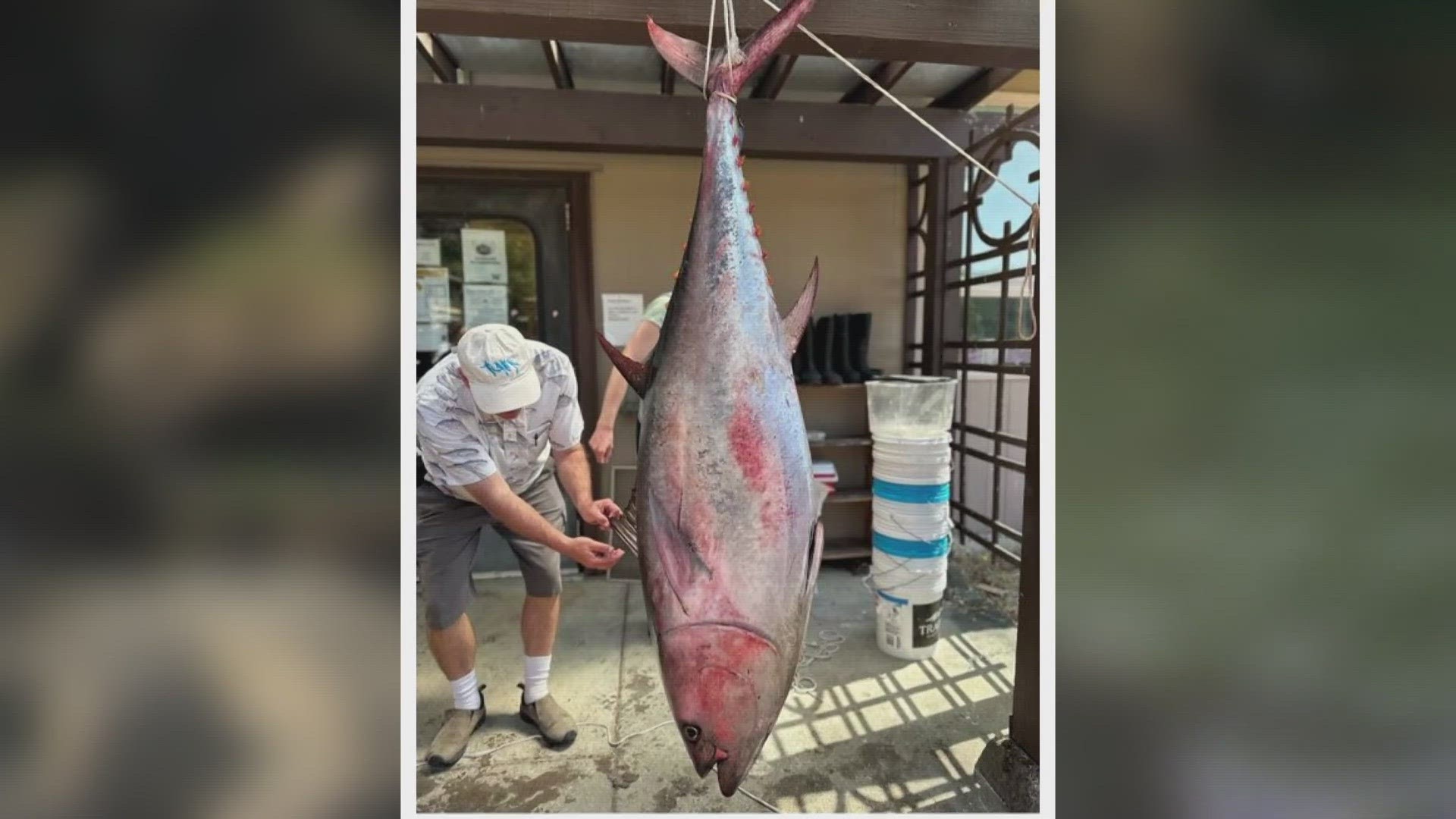FRIDAY HARBOR, Wash. — The SeaDoc Society, a marine science organization in the Salish Sea, says it recently completed investigating a Pacific bluefin tuna that washed up on Orcas Island this summer.
It says it appears the fish was healthy when it arrived near the shore and looks to have died naturally after getting stuck on the beach. Researchers say that means it likely swam all the way here, as opposed to dying elsewhere and being put there.
SeaDoc Society Communications Manager Justin Cox says the organization interviewed a wildlife veterinarian on the scene that morning, kayakers who witnessed something mysterious in nearby waters days before, the scientist who necropsied the fish, and someone who harvested pounds of sushi from the tuna. All were mesmerized by the location of the find.
"I think it was the mystery of it- all of a sudden, huge, exotic-looking fish, kind of pristine looking, just sitting right on Orcas Island's most pristine beach," Cox said. "It was just a bunch of curiosities. The science hadn't been done yet and we were there on the day it was found on that beach, helped get it- our science director helped get it to Friday Harbor Labs- and they conducted the necropsy."
Joe Gaydos, science director for the SeaDoc Society, got a call about the fish the day it was found and helped arrange transfer to Friday Harbor Laboratories. Researchers there were also surprised to see the species so far north.
"He sent us a photo of this bluefin and we were all incredibly enthusiastic about it," Dr. Karly Cohen of the University of Florida said in an interview in July. "I've never seen a bluefin tuna up close and personal like that so it was really just a mind-blowing experience and it felt unreal even as we were pulling up to the dock to this massive fish that had been placed on a gurney for us to put on a research vessel."
NOAA says in the United States, the fish are mostly found within 100 nautical miles of the California coast. Dr. Cohen says that while some records of bluefin bones were washed up in British Columbia, this is an unusual event.
"These are temperate species, they don't like our cold waters- so it's quite bizarre and rare that it showed up here," Dr. Cohen said.
The SeaDoc Society released more details and interviews in a podcast episode.
At this point, the find is considered an isolated event -- but it was interesting to researchers, fishermen and community members.
"Did we just see something that happened once in a lifetime or like a lot of things, are we seeing an indication of a trend? We don't know," Cox said. "I think a lot of the questions- it makes you at least somewhat have to consider, if the climate's changing...again, one fish on the beach is not science to say something like that conclusively, but will we see this again in the inland waters of the Salish Sea? Maybe. Will we not? I don't know."

